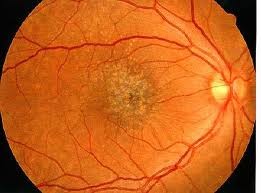
A study that recently appeared in the journal Ophthalmology has found that people who eat fatty fish at least once a week are less likely to develop age-related macular degeneration (AMD), an eye disease that gradually causes vision impairment and blindness in senior adults. The study findings add to the growing list of health benefits gained by eating fish rich in omega-3 fatty acids.
More than 2,500 senior adults took eye exams and completed questionnaires as part of the study, and researchers evaluated the relationship between fish consumption and eye health. Fifteen percent of the participants already had early-to-intermediate stage AMD, and under three percent already had advanced AMD. However, participants who indicated they ate one or more servings of healthy fish a week were determined to be 60 percent less likely to develop advanced AMD than those who ate less than this amount.
The omega-3 fatty acids present in oily fish like salmon, mackerel and albacore tuna, are generally recognized to be the therapeutic nutrients responsible for helping to prevent macular degeneration. These compounds offer eye protection that, when regularly consumed, can prevent degenerative eye disease.
"Fish oil contains DHA, a substance concentrated in the retina of the eye, and the consumption of fish oils has been shown to reduce the risk of macular degeneration," explains Marshall Editions in his book 1000 Cures for 200 Ailments: Integrated Alternative and Conventional Treatments for the Most Common Illnesses.
The Reuters report on the fish study also reveals that high doses of the antioxidants vitamins C and E, beta carotene and zinc, are all effective treatments for macular degeneration, and that many doctors already prescribe this mixture to their patients with the disease.
According to Dr. Steve Blake, author of Vitamins and Minerals Demystified, the retina of the eye contains high levels of zinc, but as a person ages, zinc levels decrease. So supplementing with zinc, among other antioxidants, appears to be a viable treatment method for the AMD.
Researchers are also evaluating the efficacy of treating AMD patients with the antioxidants lutein and zeaxanthin, both of which are present in the retina as well.
Courtesy: Natural News
